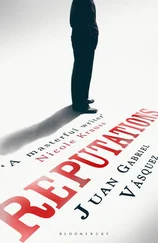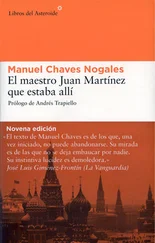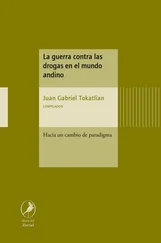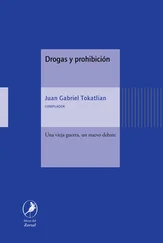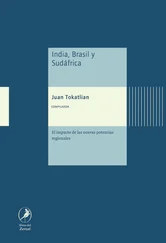I held her gently: her body was like a badly fired ceramic and was threatening to crack or fall to the floor and smash into pieces. She kept talking.
“But I don’t want this to happen again. I don’t want nights like this.”
“Nobody wants nights like this,” I said. “But we still have time.”
“You wanted to leave. I know it. You don’t have to lie to me.”
“Come on, let’s go upstairs.”
“I’ve been crying all night. I’m tired.”
“Yes, but you don’t know how much I want to be with you.”
We went upstairs. It was warm in the bedroom and it was good to be back. I took off my clothes and lay down on the bedspread. Michelle lay down beside me. “You’re exhausted,” she murmured. “I can tell.” A crow flew past the big window that overlooked the lake, and I asked Michelle to close the curtains. In that lake there were small trout. The day I asked Michelle to marry me, I remembered, I’d caught two. At that moment, two trout had seemed like a good sign.
“I wonder where the bird is,” said Michelle. “I hope he’s died, poor thing.”
“Hope so,” I said.
I thought later I’d go out to look for the pheasant, and that I’d like Michelle to come with me to look for it. I thought of proposing this to her, but she’d fallen asleep on my shoulder. I wanted to explain that we were going to be okay. I wanted to tell her that we’d made a lot of mistakes, and hurt each other a lot, but we didn’t do any of it out of cruelty, but rather trying, maybe in mistaken ways, to suffer as little as possible. I surprised myself feeling that the most difficult part had just begun.
“Nobody wants nights like these,” I said to Michelle, although she couldn’t hear me. “We’re not going to have to live alone.”
With the tip of my thumb I wiped away a dribble of saliva at the corner of her mouth. She snuggled her head against my chest and I closed my eyes to listen better to the silence of the early hours, the way the murmur of the heating mingled with the sounds of the Ardennes just as Michelle’s breathing began to mingle with mine.
—
WE LET THE MORNING go by without rushing it, and around midday I discovered there was no dry wood to light a fire with. I hadn’t been able to at Zoé’s house, either — Zoé, that already strange name, that distant night that belonged to her, not to me — and now the image and feeling of a crackling log fire turned into a sort of craving. But I didn’t go out to Modave to get a bundle, because I didn’t like the idea of being away from Michelle. Instead, I phoned Van Nijsten’s shop, in Aywaille, and a woman asked me to wait, and while I did an electronic version of a Jacques Brel song played in my ear. Then the same woman told me that Van Nijsten wasn’t there but someone would deliver my order in thirty minutes.
“Anything else?” asked the woman.
“She’s asking if we want anything else,” I said.
“Not for me,” said Michelle.
Michelle had taken a long shower, and after her shower we’d made love slowly, having taken the time to unplug the telephone and turn the digital alarm clock around, and then she had dried her hair and put on a soft pearly lipstick. But what I remembered, after all that, was how I had sat on the floor to read while she was showering, leaned against the wall beside the bathroom door, and a sliver of wood from the frame had snagged the right sleeve of my pullover. I took the sweater off and fixed the bunched thread by pulling on it with my teeth, while I heard the water pouring over Michelle and let myself be calmed by it, because the running water meant that Michelle was there, and hearing her shower, worrying about a sweater that she had given me, I felt comfortable and simple and satisfied, and I thought that must be happiness.
When the doorbell rang, Michelle was about to say something.
“Go ahead, get the delivery,” she said then.
I opened the door to a man with a bare head. His scalp was so cleanly shaved the glass of the door was reflected on it. The man put the wood down beside the poker and left the bill on the mantel, took the money, and left, all without saying a word. I knelt down in front of the fireplace.
“Okay, now we’re ready,” I said, rubbing my hands. “You were going to tell me something.”
“Have you got matches?”
I said yes, I had matches and several editions of La chasse aujourd’hui to burn. I made a bed of paper twists on the grate. When I was arranging the kindling and logs, I heard Michelle.
“On Thursday I was at my parents’ house. I’m going to spend some time with them.”
I stayed still, as if paralyzed. Maybe I believed that, if I pretended not to have been listening, the words would fall into oblivion.
Michelle went on talking. She said she no longer had any hopes for this, and that love seemed to her a distant emotion, something that no longer had anything to do with us. It hurt her to speak of love that way, like a dog that had run away in the middle of the night, while she was alone. But that was the truth. She had glimpsed it last week — on Tuesday, after eating alone in front of three bulletins from Euronews — and she’d talked to her mother and her mother had told her to think it over carefully. She did as she was told: she didn’t want to give in to her first impulse; she preferred to give us a few more days, give life a chance to straighten out its course.
“Now I’ve thought about it, while I was in the shower. And that hasn’t happened, nothing has straightened out. I want to be alone. I don’t want us to go on hurting each other.”
“Is that why you took so long?”
“What?”
“Showering. That’s why you were so long in the shower?”
“I don’t know, love. I don’t think that changes anything.”
“You had it all worked out,” I accused her. “You’ve known for a long time, and you made us carry on with this farce.”
I imagined her naked, letting the hot water hit her face, or leaning on the wall of the shower with her eyes closed and the cascade of her hair stuck to her shoulders. How had she decided? Had she thought of me, of a history of my mistakes? Had she recalled any happy moments, perhaps ones that I didn’t even remember, to then confirm how much everything had changed? I could think back, too, but the only thing that came into my head would be the coolness of the air this morning, when I got home and Michelle was waiting for me. It was cold air, but it didn’t have the harshness of winter; it was air that was pleasant to breathe, and I had breathed it avidly and had felt that every lungful was cleansing my body. At that moment, the world was as simple as bread fresh out of the oven. The spirits of the night of the dead had gone back into hiding, and Michelle was waiting for me.
“Are you sure? Is there nothing we can do?”
Michelle covered her face with her hands.
“Almost all my clothes are at my parents’ house. I took them when I went to visit, just in case.”
“And if someone helps us? If we were to see someone?”
“I’m ready,” said Michelle. “I can leave this afternoon, if you want. So we don’t drag this out.”
I felt sorry for both of us. Out of fear of feeling faint, I kept my eyes fixed on the bare match between my fingers. I realized I’d stopped understanding, that I’d lost control of something: the immediate course of my own life, Michelle’s emotions, or, simply, the idea of a splendid renovation I usually glimpsed like a prophecy when I thought of us splitting up. And the most uncomfortable aspect was to feel that some semblance of truth was about to be conceded to me and I hadn’t managed to know what it was about. I closed my eyes to listen to the voice that perhaps wanted to speak to me, to show me something about this moment. But nobody spoke in my head. Maybe this moment didn’t have any meaning, after all. Maybe pain and loss had meaning only in religion or in fables. Maybe it was futile to look for meaning in the shapeless vertigo that now, for the first time, filled me from within.
Читать дальше

